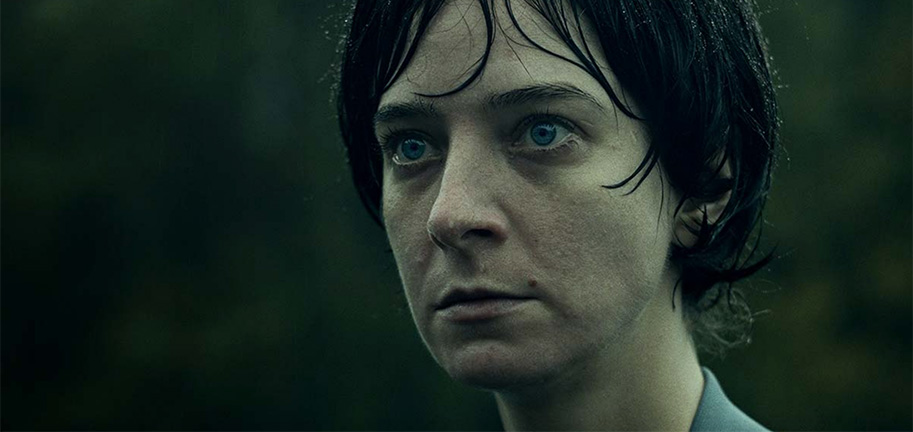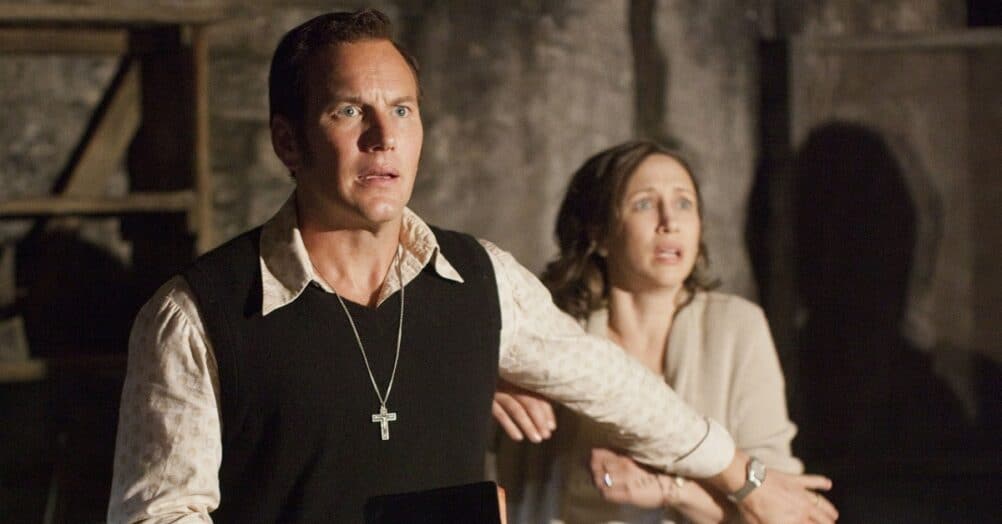Last Updated on July 30, 2021
PLOT: A troubled woman on the edge of divorce returns home to her younger sister after years apart. But when her sister and brother-in-law betray her trust, she embarks on a vicious crusade of revenge.
REVIEW: Rape-revenge genre movies of the past have historically showcased exploitative, brutal instances of sexual assaults, only to use the heinous act as a means for exact further bloody violence – often with men behind the camera. But as the times move on, we are and will continue to see more women take control of these narratives and give them the complexity and spins on the genre that is so desperately needed (Coralie Fargeat’s Revenge). Now entering that fold is Madeleine Sims-Fewer and Dusty Mancinelli’s Violation, which entirely sidesteps the exploitative aspects and subverts the violence of the genre in favor of an intimate and haunting examination of assault and its life-altering toll.
In a struggling marriage that is most likely doomed, Miriam (Sims-Fewer) and her husband Caleb (Obi Abili) are off to spend time with Miriam’s sister Anna (Anna Maguire) and her husband Dylan (Jesse LaVercombe) in their remote cabin by the lake. While the earliest moments leading to the start of the story is a cold, ominous montage featuring a grim view of the forest, the earliest moments between the family are bright and picturesque, as many a’ genre films often began. But in a non-linear fashion, writer/directors Sims-Fewer and Mancinelli bounce move on from the good times by bouncing back and forth between an eventual sexual assault against Miriam by Dylan, the aftermath and its effect on her relationship with her family, and the bloody revenge she soon claims.
Despite the shifts in setting – which are often proceeded by stylish editing that gives off a feeling of actually being pushed through time – the core of the story always remains focused on one thing, which is Miriam’s state of mind. The story is not simply a build-up to Miriam’s vengeance, but the moments between her family where the deep lack of trust is aimed right back at her. This is where the terror factors in and is deeply palpable, in that no matter who Miriam turns to, she’s maligned and ostracized. The duo behind the camera wants you to sit in every single one of these moments to feel Miriam’s turmoil, which established an illuminating perspective with an unexpected level of dread.

Their vision is clear and focused, so much that extends to the visceral moments that we don’t to see, but are necessary, During the assault itself, the direction doesn’t come off as exploitative or overdone. It’s not something meant to be witnessed, but rather felt along the length of your spine. The camera focuses on the grip of his fingers, and the vacant expression in her eyes — the stillness of her fingers. Birds are heard chirping in the morning air. The same extends to the exacting of her revenge. When the time comes it’s not stylish or grisly violent, but again, meant to evoke a prolonged sensation that weighs on you. Doing what needs to be done doesn’t give her pleasure or turn her into a warrior woman. It’s incredibly difficult, and even pains her, and it’s executed with persistent uneasiness via prolonged takes that force you to sit in the moment and relate with Miriam’s struggle.
In the role of Miriam is Sims-Fewer herself, bringing just as much vision to her character as she does to the rest of her work behind the camera. During the bright early moments, she’s a ray of sunshine, but as the events take their toll she becomes a woman with a part of her that’s forever gone. Her happiness is replaced by regret, shame, and fear over how her sister has responded to her confession. Sims-Fewer delivers this is with incredible, multi-faceted execution, notable with her utter disbelief after confronting her assaulter and his toxic masculinity, trying to put the blame on her; the hesitance in telling her sister and; the utter rage in the aftermath of both. As the time periods bounced around we see all the different layers of her performance, with Sims-Fewer painting a full portrait of sadness, anger, loss, confusion and more, and all on the journey back to some sense of normalcy.
As focused as much of the individual scenes are in terms of purpose – with only a few feeling a bit overindulgent in the grand scheme of things – what took some time getting used to was the non-linear approach itself. It’s an admirable decision, even if the shifts and the technical flourishes of editing can be a bit too jarring when the overall content already is. It’s tough to say if it was a necessary approach to the story itself, and indeed, some aspects do fall by the wayside in the journey to the end. There are elements that feel unresolved narratively, with Miriam being the primary core of the story. While the behaviors of her sister and brother are key to her mindset, we don’t get a strong enough resolve from either of them. While the movie doesn’t completely lack in emotional resonance by the end, the message of empathy as part of preserving feels a bit undercut in putting so much squarely on Miriam’s shoulders. The end result is something that feels more like an experience from moment to moment and less like a narrative arc.
However, as a visceral experience, it can’t be denied that the approach of Sims-Fewer and Mancinelli succeeds in keeping the emotional state of Miriam front and center, which means it's not lacking in any of the power that can burn itself into your brain. We get through the bloody bits early on making it, overall, a story about the fears that come from being a survivor of assault and the journey it takes our lead on, despite her having to reckon with what she feels she has to do. While narratively, the juggling act makes it not as effective purely from a storytelling front, the experience from top-to-bottom is jarring, haunting, unnerving and, ultimately, unforgettable, and further finds a genre moving further from its grotesque origins into more capable hands.




















Follow the JOBLO MOVIE NETWORK
Follow us on YOUTUBE
Follow ARROW IN THE HEAD
Follow AITH on YOUTUBE